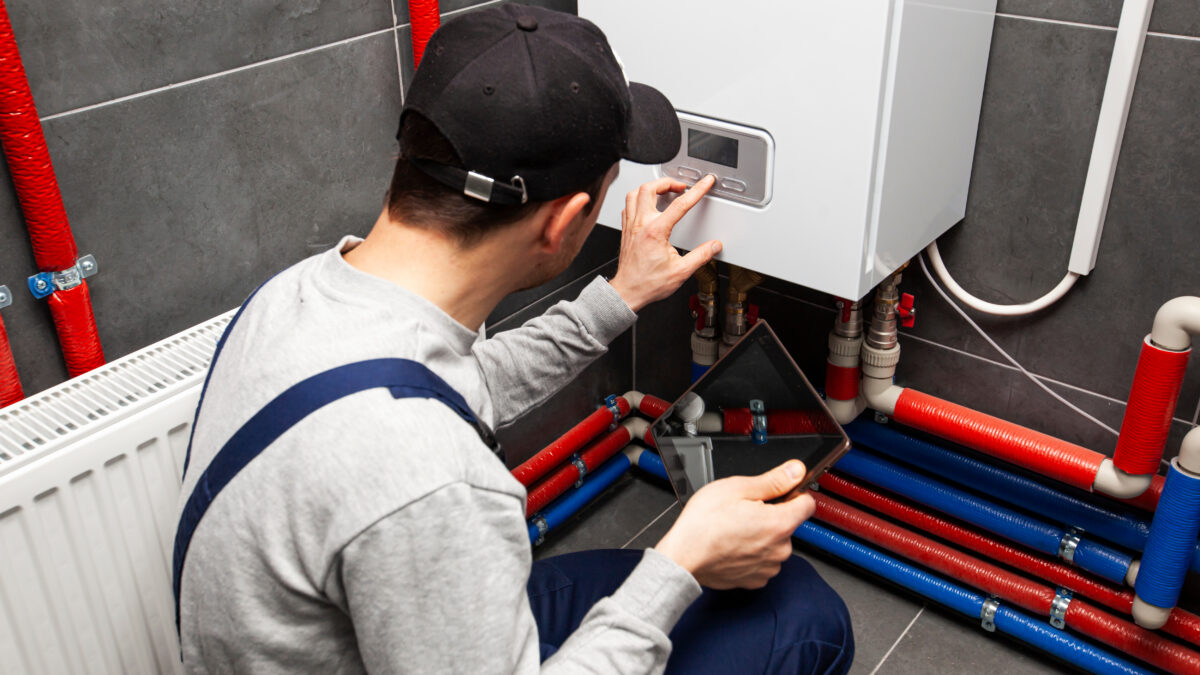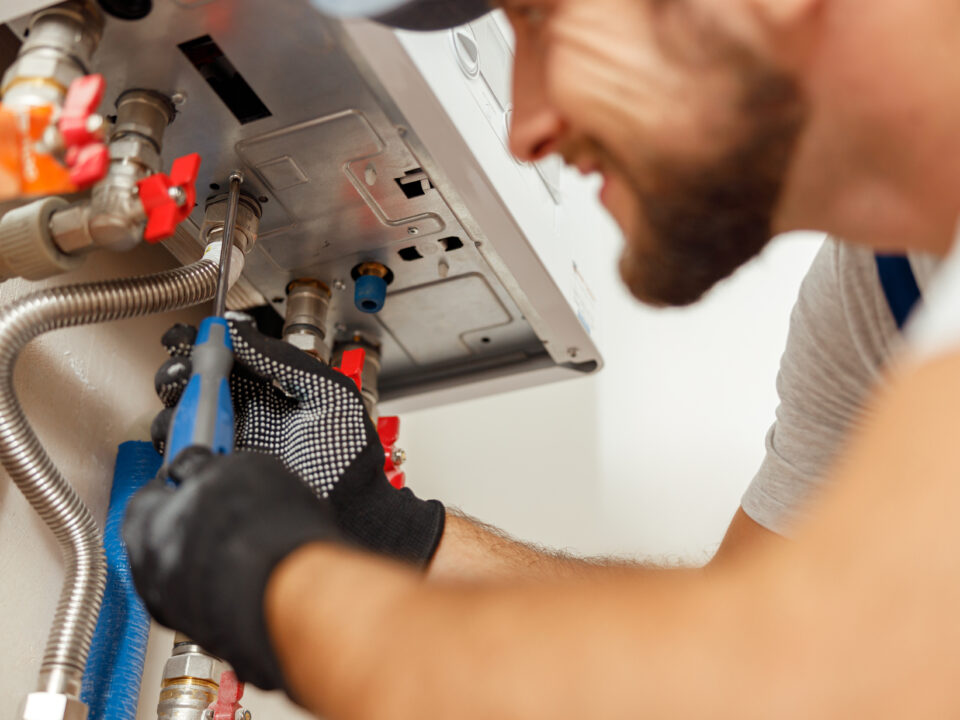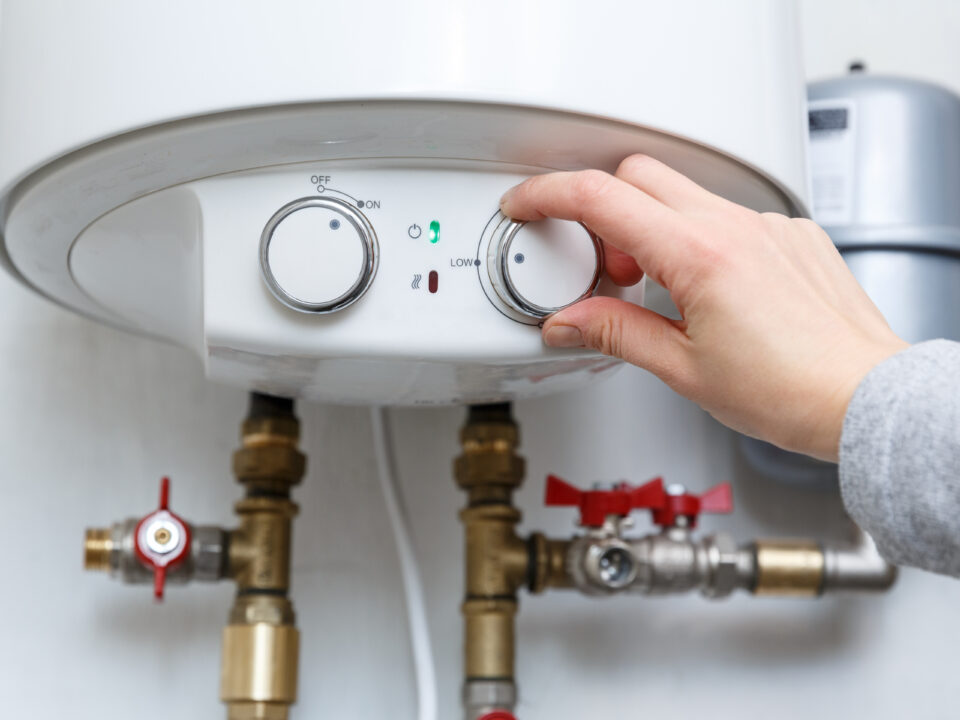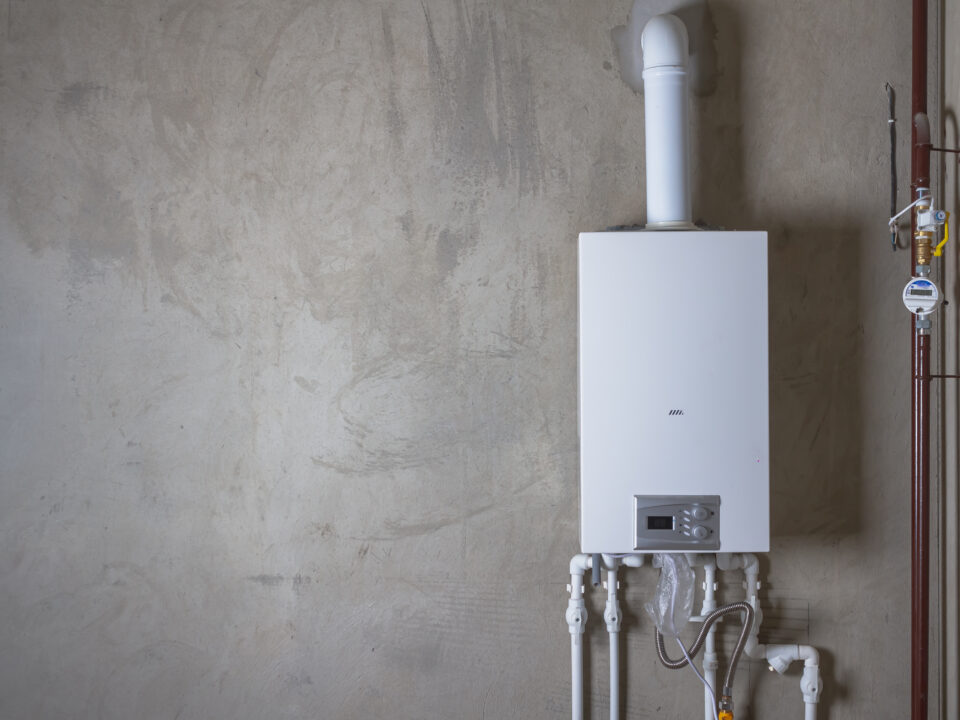- Call Us!
- 801-722-8888

The Essential Guide to Water Heaters and Plumbing: Keeping Your Home Comfortable
July 25, 2023
The Pros and Cons of a Tankless Water Heater
December 18, 2023Water heaters are an essential part of any household, providing hot water for daily tasks such as showering, cooking, and cleaning. But have you ever wondered how long your water heater will last? The average lifespan of most water heaters falls between 8-12 years; however, there are many factors that can influence this number. Knowing the signs of a failing water heater and when to replace it can save you from unexpected cold showers and potential damage to your home. In this blog post, we’ll discuss the average lifespan of water heaters and how to determine when it’s time for a replacement.
Water Heater Lifespan
The longevity of your water heater is influenced by many factors. Let’s begin by discussing the different factors that impact the durability and efficiency of water heaters, and then we will go into more detail regarding each type of water heater.
Factors That Affect Water Heater Lifespan
Quality of Installation
Proper installation is crucial for the long-term performance of a water heater. When a water heater is installed incorrectly or without following the manufacturer’s guidelines, it can lead to premature failure.
Water Quality
The quality of the water in your area can impact the lifespan of your water heater. Hard water, which contains high levels of minerals such as calcium and magnesium, can cause sediment buildup and corrode the tank, reducing its longevity. Regular water heater maintenance, such as flushing the tank and installing a water softener, can help mitigate these issues.
Usage Patterns
The frequency and intensity of water heater usage can impact its lifespan. A water heater that serves a large family or is used for high-demand activities like running multiple showers simultaneously or operating commercial equipment may have a shorter lifespan compared to a water heater in a smaller household with less usage.
Environmental Factors
External factors such as ambient temperature, humidity levels, and exposure to corrosive elements like salt water or chemicals can affect the lifespan of a water heater. For example, a water heater installed in a basement with high humidity levels may deteriorate faster than one installed in an area with proper ventilation.
Comparing Different Types of Water Heaters
Traditional Tank Water Heaters
• Lifespan: Typically, 8-12 years.
• Maintenance: Requires annual flushing and periodic checking of the anode rod.
• Factors Affecting Lifespan: Sediment buildup, corrosion, and the efficiency of the heating element.
Tankless Water Heaters
• Lifespan: Up to 20 years.
• Maintenance: Regularly cleaning the filters and checking for scale buildup.
• Factors Affecting Lifespan: Frequency of use, water quality, and proper installation.
Heat Pump Water Heaters
• Lifespan: Around 10-15 years.
• Maintenance: Needs periodic checks of the heat pump system and filters.
• Factors Affecting Lifespan: Ambient temperature, usage patterns, and maintenance regularity.
Solar Water Heaters
• Lifespan: Approximately 20 years.
• Maintenance: Regularly cleaning solar panels and checking the system for leaks.
• Factors Affecting Lifespan: Solar panel placement, local climate, and quality of components.
Signs of a Failing Water Heater
Recognizing the signs of a failing water heater is crucial to avoid unexpected cold showers and potential damage to your home. Here are the most common signs that indicate it might be time for a repair or replacement:
Insufficient Hot Water
If your water heater no longer provides enough hot water for your needs, even after adjusting the temperature settings, it could be a sign of a failing system.
Rusty or Discolored Water
If you notice rusty or discolored water coming from your taps, it could indicate corrosion inside the water heater tank. This is a clear sign that your water heater is deteriorating and may need replacement.
Strange Noises
Unusual rumbling, popping, or banging noises coming from the water heater tank can be a sign of sediment buildup, which limits the efficiency of the heater and can lead to failure.
Leaks or Water Damage
Any visible leaks or signs of water damage around the water heater should not be ignored. A leaking water heater can cause significant damage to your home and requires immediate attention.
Age
If your water heater is approaching or has exceeded its expected lifespan, it is wise to consider a replacement to avoid unexpected failure.
How Proper Maintenance Can Increase Water Heater Life Expectancy
By following some simple maintenance practices, homeowners can extend the lifespan of their water heaters and ensure they provide hot water efficiently. While doing these things will not guarantee that your system will never fail, it can help delay the need for a replacement.
Inspecting the Anode Rod
The anode rod helps protect the tank from corroding by attracting corrosive elements. Inspecting the anode rod regularly and replacing it when necessary can prevent tank deterioration.
Adding a Water Softener
One of the most overlooked ways to help extend the life of your water heater is to add a water softener. Installing a water softener prevents mineral build-up, which can insulate heating elements and lead to inefficiencies and potential damage.
Flushing the Tank
Sediment buildup inside the tank can contribute to a variety of issues. Flushing the tank annually helps remove sediment and keeps your water heater running at its best.
Checking the Pressure Relief Valve
The pressure relief valve is a safety mechanism that releases excess pressure from the tank. Regularly checking and testing the valve ensures that it is functioning correctly.
Adjusting the Temperature
Your water heater is typically set up to heat water to the same temperature consistently. However, over time, you may need to adjust the temperature depending on whether your water is not hot enough or too hot. Setting the water heater’s temperature to the recommended level ensures safety and reduces strain on the system, potentially prolonging its life.
Get 24/7 Water Heater Replacement with Nearby Plumbing
As mentioned earlier, water heaters typically last between 8 and 12 years. If your water heater is reaching the end of its lifespan or showing signs of deterioration, it’s time to start thinking about a replacement. Don’t wait until it completely fails and leaves you without hot water. Contact us today to schedule your free estimate. We offer a variety of energy-saving options for all water heater replacements.




